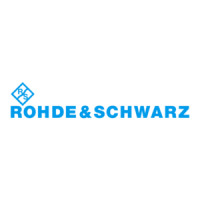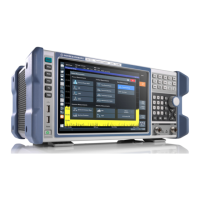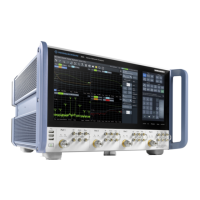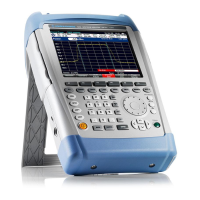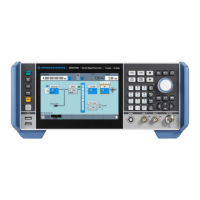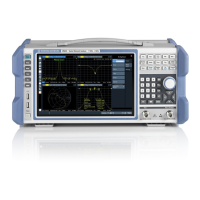R&S FSL Power Measurements – MEAS Key
1300.2519.12 4.79 E-11
Some of the measurement specifications (e.g. PDC, RCR STD–27B) require measurement of the
o
ccupied bandwidth using a peak detector. The detector setting of the R&S FSL has to be changed
accordingly then.
Predefined CP / ACP standards
The test parameters for the channel and adjacent–channel measurements are set according to the
m
obile radio standard. The available standards are listed below.
Parameter Standard
CDMA2000 CDMA 2000
CDMA IS95A FWD CDMA IS95A forward
CDMA IS95A REV CDMA IS95A reverse
CDMA IS95C Class 0 FWD CDMA IS95C Class 0 forward
CDMA IS95C Class 0 REV CDMA IS95C Class 0 reverse
CDMA IS95C Class 1 FWD CDMA IS95C Class 1 forward
CDMA IS95C Class 1 REV CDMA IS95C Class 1 reverse
CDMA J–STD008 FWD CDMA J–STD008 forward
CDMA J–STD008 REV CDMA J–STD008 reverse
CDPD CDPD
NADC IS136 NADC IS136
PDC PDC
PHS PHS
RFID 14443 RFID 14443
TD–SCDMA FWD TD–SCDMA forward
TD–SCDMA REV TD–SCDMA reverse
TETRA TETRA
W–CDMA 3GPP FWD W–CDMA 3.84 MHz forward
W–CDMA 3GPP REV W–CDMA 3.84 MHz reverse
WIBRO WIBRO
WiMAX WiMAX
WLAN 802.11A WLAN 802.11A
WLAN 802.11B WLAN 802.11B
Note: For the R&S FSL, the channel spacing is defined as the distance between the center frequency
of the adjacent channel and the center frequency of the transmission channel. The definition of
the adjacent–channel spacing in standards IS95 B / C, IS97 B / C, IS98 B / C and CDMA2000
DS / MC1 / MC3 is different. These standards define the adjacent–channel spacing from the
center of the transmission channel to the closest border of the adjacent channel. This definition
is also used for the R&S FSL if the standard settings marked with a dagger are selected.
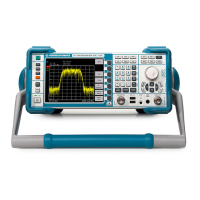
